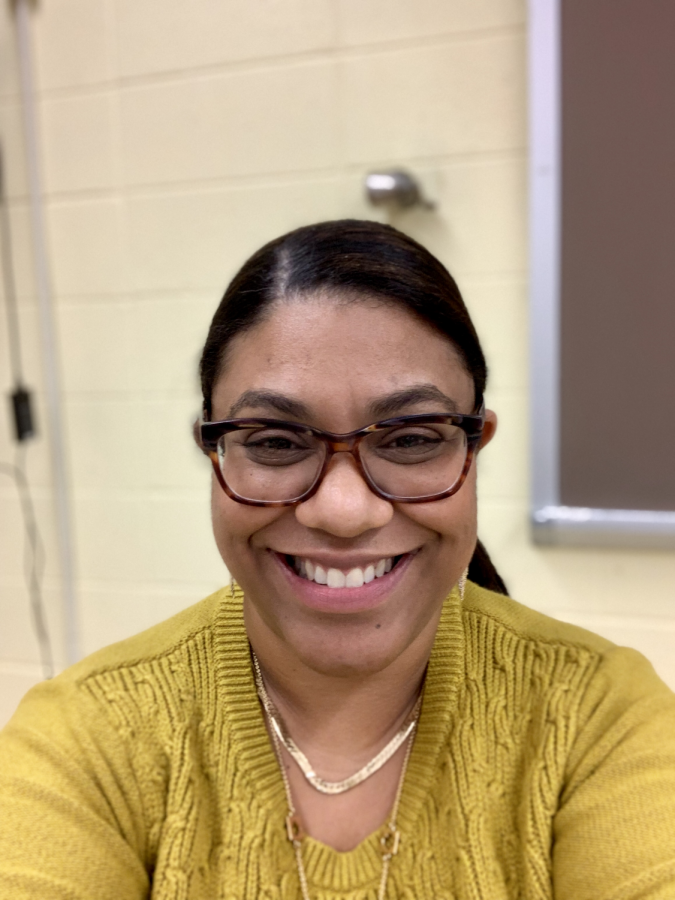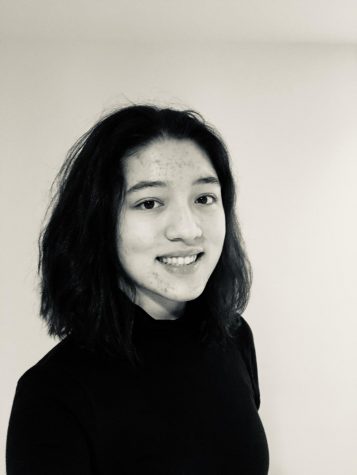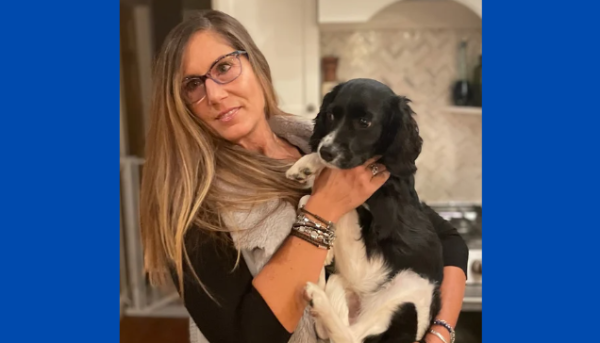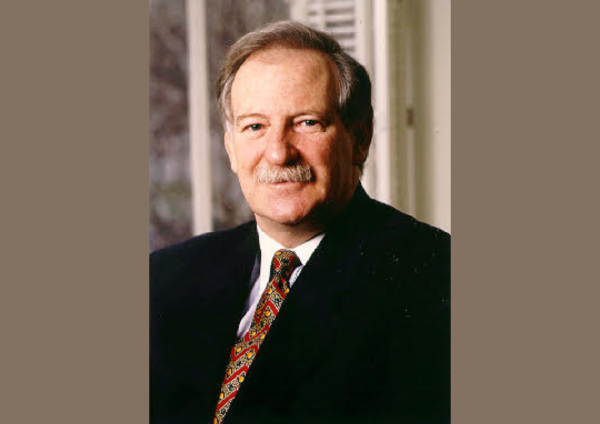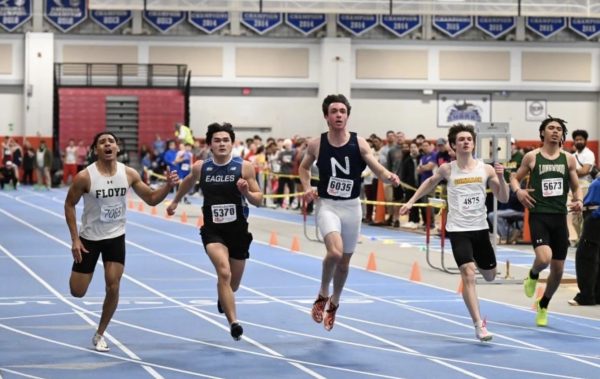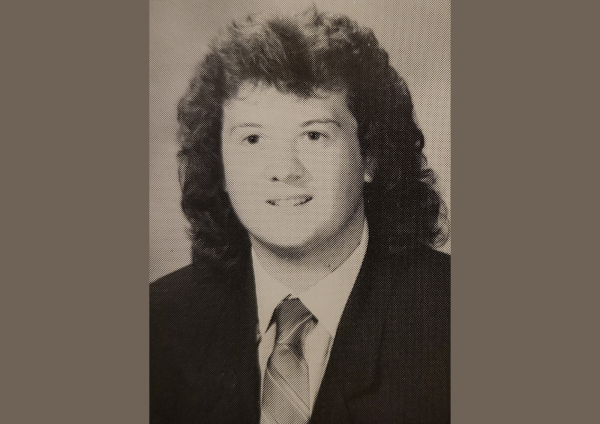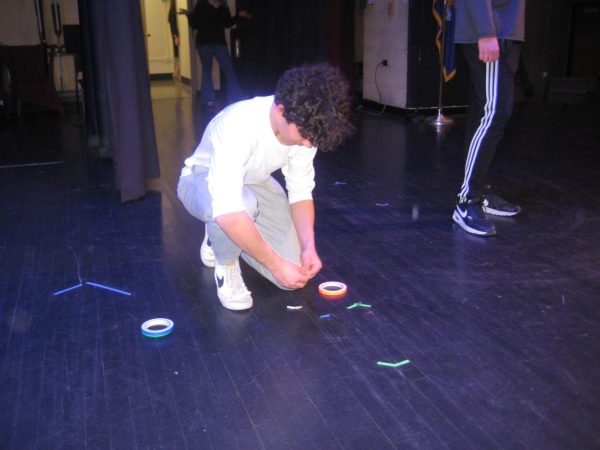Everything you’ve wanted to know about: Señora Argueta
February 16, 2019
Hola Mrs. Argueta! Thanks for taking the time to answer the Port Press’ questions!
Among the student body at Northport you’re seen as an energetic and kind-hearted teacher that brings not only the grammar and vocabulary but also the fascinating culture of the Spanish speaking world to your students. We at the Port Press would like to know more about you as an individual, as well as your thoughts regarding being a Spanish teacher at NHS.
Q: Why did you choose to teach Spanish?
A: I really love the culture, and my mom doesn’t speak English. So a little selfishly, (laughter) I feel that if more people could speak Spanish, more people would be out there in the world that could help her if she ever needed something… that was part of my motivation.
Q: Did you always want to be a teacher?
A: No, I actually wanted to be a physical therapist at first, but, there’s something about working with children that’s really cool- teenagers in particular. They have a lot of energy, they’re a lot of fun, they give you attitude once in a while!
Q: You mentioned in class that you came to the United States when you were a little girl. Do you remember being a kid in the Dominican Republic?
A: I do, I grew up on a farm. So there were cows, and chickens, and no hot or running water. It was a very simple life, and then I moved to New York City, so it was a huge culture clash, like from rural to the city, but I hadn’t lived with my parents, so it was really exciting to live with my parents again, full time.
Q: What was your favorite hobby growing up?
A: I used to love to read; and I still love to read. Reading was a really fun escape. We only had one television, and my mom always watches her telenovelas, so there were times where the TV was off limits!
Q: What was your favorite food when you were a kid, and what is it now?
A: When I was a kid, I used to love salami, with plantains, because my
mom used to make that for me. And now, I love all things bread, sweet bread, sandwiches, I love pasta too!
Q: What schools did you go to (elementary school, middle, high, college)?
A: I was very blessed to go to private school, and my parents sent me to catholic school. I went to Good Shepherd Elementary school, from kindergarten through 8th grade, which was fun- I’m still friends with those kids I went to school with. We were together for so many years, and then I went to high school… private school in the Bronx. Then I went to Stony Brook, for my undergrad and my grad. After that I did a few semesters at La Universidad Complutense De Madrid in Spain.
Q: Do you prefer high school or college, and why?
A: I had a lot of fun at both, but I think that college was really cool because I had a lot more freedom to be who i wanted to be; in high school I still had to worry about what my parents thought about my music or… my parents are old school. I think college was my favorite.
Q: What’s your favorite memory from college?
A: I took a history class, kind of random, but I really loved it… and the teacher was very inspiring- we had to put together an informational presentation, and get guest speakers… I really enjoyed organizing it.
Q: Could you tell us a little about your family?
A: My father is one of 22 kids, and my mother is one of 16, which was very common. We are an interesting bunch, (laughs) my mom is a housewife, always has been. She had worked on and off, but for the majority of my life she was a housewife. And my dad has had a few different jobs but he works for the MTA. He’s kind of been the breadwinner, he’s very formal… I also have two brothers who are very different from me. All of us are so different from each other, but we love each other.
Q: How important do you think the role of family is in the lives of high school students?
A: I think that if you don’t have that base… that strong base of your family, it’s very hard to build up from there. But your family can be your friends, I really believe that your friends can become family, but you need that foundation- for when you have a struggle, for when you’re happy, you know, people to celebrate with and people to cry with. I think that family is very important.
Q: Would you be willing to tell the Port Press one of your famous Carlos Junior stories (Señora. Argueta’s 11 year old son)? He’s become a favorite among your students and readers of the Port Press are dying to hear the latest anecdote…
A: Oh my gosh… my favorite Carlos Junior story was when he was in kindergarten and he was going to have a birthday party. I gave him 22 invitations for the kids in his class, and he was supposed to put one in each little mailbox. He came home… and said, “I need more invitations.” I asked him “what do you mean?” and he said “well, the kids on the bus wanted to come too.” He gave out the invitations to all the kids on the bus. At his birthday party- we had kids from 5th grade, 3rd grade, 2nd grade, kindergarteners… it was only supposed to be 22 kids from his class, where maybe a few wouldn’t come… I had 34 kids! That Carlos Junior…. (laughter)
Q: As a native speaker and teacher, how important do you think it is for students to be exposed to different accents (for example in orals)?
A: I think that it’s really important, because what happens is, if you’re not exposed, when you meet someone who has a different accent, you’d feel intimidated and kind of shut down. I think the beautiful thing is that you could have me, you could have Mrs. Ellner , who’s from Argentina , you could have a teacher who’s from Puerto Rico , a teacher who grew up with more of a Mexican Spanish… I think it’s really important because when you encounter people who speak with different accents, you’re more prepared. There are even words that we use that are different. There are ways that we say things that are different; Mrs. Schaefer says things differently than I do. It’s still the same language, but the more accents you hear the less intimidated you are.
Q: Would you say that you have a Dominican accent when you speak Spanish?
A: Well, I would say I do, but when I’m around people from the Dominican Republic , they always say I don’t, so I think that my accent has become a little more neutral, because I’ve been teaching for 17 years. And during this time, I’ve learned how to be more of a Spanish teacher, so that my students can always understand me. I still keep my flair, but not as heavy as it used to be.
Q: Are there any studying tips you would recommend to high school students learning Spanish?
A: I’d say… that vocabulary is most important in life, the more words you know. If your grammar is wrong, people can still understand you, but it’s really learning words, listening, asking questions, and I really believe that the more emphasis you put on vocabulary, the stronger you will be as a language student.
Q: Finally, as a teacher and a mom, what would you recommend to all students at Northport High School?
A: Just remember to balance… it’s a hard thing, because we want those grades, but at the end of the day, you have to be happy and healthy- that grade is not the only thing that matters. For me, I don’t give homework on the weekends, because I really believe that if we work hard all week, we should have time with our family, and that kind of balance is really important.
Thank you so much! Adios!

